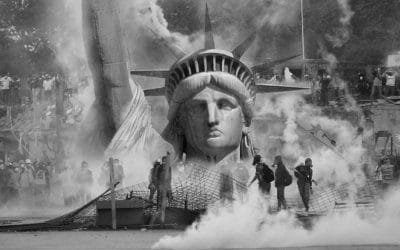College costs have risen dramatically over the last several decades. In many cases, it’s difficult to find a college where per-student costs are under $20,000 each year. Most often, tuition doesn’t measure the true cost because taxpayer and donor subsidies pay part of the expenses. While costs are rising, education quality is in precipitous decline, particularly at the undergraduate level. Part of the reason is the political climate on college campuses, where professors use their classrooms for proselytizing and indoctrination and teach classes that have little or no academic content. Let’s look at some of it.
In a study to be published in Academic Questions, sociologist Charlotta Stern and economist Daniel Klein found in a random national sample of 1,678 university professors that Democratic professors outnumber Republican professors 3 to 1 in economics, 28 to 1 in sociology, and 30 to 1 in anthropology. As George Will said in his Washington Post column, “Academia, Stuck to the Left” (Nov. 28, 2004): “Many campuses are intellectual versions of one-party nations.”
That strong campus leftist bias goes a long way to explain mindless university courses like: “Canine Cultural Studies” (University of North Carolina, Chapel Hill), “I Like Ike, But I Love Lucy” (Harvard), “History of Electronic Dance Music” (UCLA), “Rock and Roll” (University of Massachusetts) and “Hip-Hop: Beats, Rhyme and Culture” (George Mason University). There are many other examples documented by Accuracy in Academia (academia.org).
A Zogby survey was commissioned by the National Association of Scholars (NAS) to compare the general cultural knowledge of today’s college seniors to that of yesteryear’s high school graduates. The questions for the survey were drawn from those asked by the Gallup organization in 1955 covering literature, music, science, geography and history. The results were reported in a NAS publication titled “Today’s College Students and Yesteryear’s High School Grads.” It concludes that “Contemporary college seniors scored on average little or no higher than the high-school graduates of a half-century ago on a battery of 15 questions assessing general cultural knowledge.”
A 1990 Gallup survey for the National Endowment of the Humanities, given to a representative sample of 700 college seniors, found that 25 percent did not know that Columbus landed in the Western Hemisphere before the year 1500, 42 percent could not place the Civil War in the correct half-century, and 31 percent thought Reconstruction came after World War II.
In 1993, a Department of Education survey found that, among college graduates, 50 percent of whites and more than 80 percent of blacks couldn’t state in writing the argument made in a newspaper column or use a bus schedule to get on the right bus, 56 percent could not calculate the right tip, 57 percent could not figure out how much change they should get back after putting down $3 to pay for a 60-cent bowl of soup and a $1.95 sandwich, and over 90 percent could not use a calculator to find the cost of carpeting a room. But not to worry. The American Council of Trustees and Alumni’s 1999 survey of seniors at the nation’s top 55 liberal arts colleges and universities found that 98 percent could identify rap artist Snoop Doggy Dogg and Beavis and Butt-Head, but only 34 percent knew George Washington was the general at the battle of Yorktown.
Americans as donors and taxpayers have been exceedingly generous to our universities. Given our universities’ gross betrayal of trust, Americans should rethink their generosity as well as rethink who serves on boards of trustees that, in dereliction of duty, permit universities to become hotbeds of political activism and academic fraud. There are a few universities where there’s still integrity and academic honesty, and they don’t cost an arm and a leg. Among them are: Grove City College, Pa., Hillsdale College, Mich., Franciscan University, Steubenville, Iowa, and others listed at the Web page of Young America’s Foundation (www.yaf.org).



